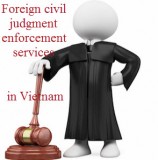Introduction to the credit institution system in Vietnam
Credit institution system in Vietnam includes credit institutions, foreign bank branches and representative office of foreign credit institutions on Vietnam
Post date: 11-09-2013
13,075 view(s)
1. Overview of the credit institutions in Vietnam
Viet Nam”s banking and finance sector remains tightly controlled. Like many other jurisdictions, credit institutions (including commercial banks and foreign bank branches) and the banking operations of other organisations are overseen and regulated by a state body, the State Bank of Viet Nam (SBV).
The SBV is a quasi-ministerial body and the SBV Governor has the powers of a Minister. Among other tasks, the SBV:
- Manages currency and banking operations;
- Acts as a bank to credit institutions;
- Is responsible for issuing and revoking licences issued to credit institutions; and
- Is the authority with whom certain loan transactions must be registered.

The system of credit institutions in Vietnam
Foreign banks, both banking and non-banking credit institutions, are entitled to operate in Vietnam in any of the following forms:
- representative office
- branch of a foreign commercial bank
- commercial joint venture bank with foreign capital contribution currently not exceeding 50% of the chartered capital (higher rates permitted with the approval of the Prime Minister).
- joint venture finance leasing company
- 100% foreign invested finance leasing company
- joint venture finance company
- 100% foreign invested finance company and
- 100% foreign-owned banks.
In order to establish any of the above entities, the approval for a licence from the SBV is required. For establishing a branch of a foreign bank, the parent bank must have total global assets of at least US$20 Billion. For establishing a 100% foreign owned bank or a 100% foreign owned financial corporation in Vietnam, the parent credit institution must have total global assets of at least US$10 Billion.
There is a list of legal capital requirements that foreign banks must meet. Foreign finance companies, including finance lease companies are permitted to have a presence in Vietnam in the form of a representative office, joint venture finance leasing company or 100% foreign invested finance leasing company.
2. Ownership in credit institutions in Vietnam
Under the Law on Credit Institutions, the maximum permissible ownership of charter capital in a shareholding credit institution is 5% for an individual shareholder and 15% for an institutional shareholder. Moreover, a shareholder and its related persons may only hold a maximum of 20% of charter capital of a shareholding credit institution. Notwithstanding the foregoing, exceptions to the ownership limit for institutional shareholders include (i) state ownership in equitised credit institutions, (ii) foreign ownership as stipulated by the government and (iii) where a credit institution is facing difficulties or increased ownership would ensure the safety of the credit institution system.
Although the law now permits wholly-foreign owned banks to operate in Viet Nam, foreign ownership in Vietnamese commercial banks remains strictly limited.
Firstly, For capital contributions in the form of the purchase of shares, the total level of foreign shareholding of all foreign investors (and their affiliates) must not exceed 30%. Within this limit, several other limits apply including:
- The maximum shareholding by a foreign investor, which is neither a foreign credit institution nor a foreign strategic investor, is 5%;
- The maximum shareholding of any one foreign credit institution is 10%; and
- The maximum shareholding of any one foreign ”strategic investor” is 15%, although in special cases the Prime Minister, based on the proposal of the Governor of the SBV, may make decision permitting a higher level of shareholding, up to 20%.
Broadly, a ”foreign strategic investor” is a reputable foreign credit institution with sufficient financial capability and experience to enable it to assist the Vietnamese bank in its development and to provide it with ”strategic advantages”. Additional criteria relate to minimum total assets, international operating experience in the banking sector, international credit ratings and the provision of undertakings to
assist the Vietnamese bank.
I n addition to the maximum shareholding limits, a foreign credit institution is also only permitted to be a foreign strategic investor in one Vietnamese bank.
These limits apply equally to foreign investment in listed and unlisted commercial banks.
Viet Nam may limit equity participation by foreign credit institutions in equalised Vietnamese state-owned banks to the same level as equity participation by Vietnamese banks.
3. Foreign bank branch in Vietnam
A branch is prohibited from making capital contributions to and establishing enterprises engaged in activities involving insurance, securities and finance leasing. The Law on Credit Institutions restricts a foreign bank branch from extending credit facilities totaling in excess of 15 per cent of its equity to a single client.
A branch of foreign commercial bank is not allowed to open other transaction points apart from its branch office.
Foreign credit institutions are allowed to issue credit cards on a national treatment basis.
4. Investment by credit institutions in Vietnam
Under the Law on Credit Institutions, a commercial bank may only use its charter capital or other reserve funds when making capital contributions to enterprises and no capital contribution shall exceed 40% of the bank’s (including its subsidiaries and affiliates) equity capital and reserve funds. A bank must establish or acquire subsidiaries or affiliates to carry out any activities involving securities (e.g. brokerage, underwriting, and investment portfolio management), insurance or finance leasing on behalf of the bank. Further, a commercial bank (including its subsidiaries and affiliates) may not own more than 11% of the equity capital of an enterprise operating in the insurance, securities, foreign exchange, gold or consumer credit sectors. A finance company is permitted to contribute capital to enterprises and investment funds. The total ownership by a finance company (including its subsidiaries and affiliates) must not exceed 11% of the charter capital of a target company. In addition, the total capital contribution by a finance company (including its subsidiaries and affiliates) to other enterprises shall not exceed 60% of its equity capital and reserve funds.
5. Financing:
* Loans:
The Law on Credit Institutions provides that a credit institution may not extend credit to (i) management officers or their relatives (ii) institutional shareholders whose representative is member of the board of directors or supervisory board (for shareholding credit institutions), and (iii) institutional members or owners (for limited liability credit institutions). Moreover, a
credit institution is not permitted to extend credit to enterprises engaged in securities activities and under its control. It also cannot extend credit where the underlying security is shares owned by the credit institution or its subsidiary, or provide a loan for a capital contribution to another credit institution based on the receipt of security in the form of shares of the credit institution that is the recipient of the capital contribution.
A credit institution may not provide loans on preferential conditions or without security to (i) auditing firms, auditors or inspectors currently conducting an audit/inspection at the credit institutions or foreign bank branch, (ii) chief accountant, (iii) major shareholders or founding shareholders, (iv) those conducting appraisal and approval of loans or (v) subsidiaries and affiliates.
Credit institutions are permitted to obtain loan funds from onshore and offshore lenders.
The Investment Certificate of a foreign-invested enterprise will stipulate both the charter capital (the equity contributed by the investors) and the ”investment capital” of the enterprise. The difference between these two amounts is colloquially referred to as the ”loan capital”, being the amount that the entity is permitted to borrow by way of medium and long-term loans. While there is no official thin-capitalisation rule, authorities often apply a 70:30 debt to equity ratio, although this may differ depending on the sector in which the entity operates.
All private sector foreign loans are subject to supervision and monitoring by the SBV. In particular, medium or long-term foreign loans (those with a term over 12 months) must be registered with the SBV prior to drawdown. This registration process is akin to an approval process; the loan will not be registered if it does not meet the stipulated conditions. Moreover, money will not be able to enter Viet
Nam for draw-down or be repaid to the foreign lender, without the requisite registration approval.
*Security for loans
The 2005 Civil Code provides for several forms of secured transaction, the most commonly used being pledges, mortgages and guarantees.
Assets that may be used as security include:
- Money and valuable papers;
- Fixed and floating assets;
- Land use rights (although only by certain land users and only to domestic Vietnamese credit institutions) and assets attached to land such as buildings; and
- Rights to exploit natural resources.
Generally, security transactions are effective from the time they are lawfully entered into, except for secured transactions which are required to be registered, which are only effective from the time of registration.
It is mandatory to register certain security transactions, including:
- Mortgage of land use rights; and
- Mortgage of aircraft and ships.
Most securities that require registration are registered with the National Registration Agency for Secured Transactions (NRAST), although specific registration bodies apply to certain transactions. For example, mortgages over land use rights must be registered with the relevant office in the province where the land is located.
Even where registration is not compulsory, it is sometimes permitted. If a secured transaction is registered, the transaction becomes legally binding against a third party from the time of registration. Given this priority, prudent lenders will seek to register securities with NRAST wherever possible.
Lawyervn.net
Posted contents:














Send your comment